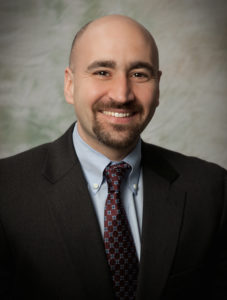Just this past March, the Kentucky Supreme Court handed down a complex decision in Sneed v. Burress that has implications for trial conduct beyond the criminal-trial setting involved in the case.
Sneed was charged with first-degree rape, and Bullitt Circuit Court Judge Rodney Burress presided over Sneed’s trial in July 2014. In an opening statement, Sneed’s lawyer, Julie Kaelin, remarked that the victim’s father, a witness to be called by prosecutors, was “a liar.” The Commonwealth objected and asked for a mistrial. Judge Burress sustained the objection, but rather than granting a mistrial, simply directed Kaelin not to make any more such comments. Moments after that admonition, however, Kaelin made a remark about the victim herself having “trouble with lying.” When Kaelin did that, Judge Burress granted a mistrial.
On Sneed’s appeal, the Kentucky Supreme Court upheld the mistrial, but its decision consisted of a majority opinion, a concurring opinion, and a dissenting opinion, thereby demonstrating the intricate nature of the trial issues at hand.
All of the Court’s justices seemingly agreed that witnesses called at trial are forbidden from characterizing the truthfulness (or lack thereof) of another witness. This rule applies to witnesses in all form of criminal cases and even in civil cases in that witness veracity is a fundamental determination treated as being within the exclusive province of a given jury.
Never before, though, has a court in Kentucky concluded that a lawyer cannot characterize a witness as being untruthful. Yet that appears to be what a majority of Kentucky Supreme Court justices in Sneed has ruled as being prohibited in courts of the Commonwealth from here on out. As the two dissenting justices emphasized, though, “Nothing…in any case that [we] know of, prohibits a lawyer in his opening statement from telling the jury that the evidence will show that an adversarial witness [is] lying.” Interestingly, the concurring opinion may limit (or at least clarify) the majority ruling by prohibiting lawyers from making such characterizations in opening statements but not in closing arguments.
The full extent to which the majority’s opinion will muzzle lawyers going forward is unclear because the Court’s ruling hinges on the premise that Judge Burress had – indeed, that all judges must have – the discretion to grant a mistrial when a lawyer explicitly ignores a court’s clear directives. Lawyers will be left to make sense of the ruling as it applies to specific cases they try, meaning it is almost guaranteed that the Sneed decision will be revisited sometime in the future.
Regardless of how the decision washes out for attorneys, witnesses of any kind – including in civil cases – should not comment on whether another party or witness is believable. Many might find it difficult to refrain from doing so in particular trial settings, but it is clear now that Kentucky courts only want a jury to make witness‑credibility assessments. If nothing else, Sneed v. Burress reflects the Kentucky Supreme Court’s continued disdain for witnesses characterizing any other witnesses’ veracity.

By Tom Coffey – Thomas Coffey’s practice focuses on litigation, drawing upon his employment background as a Jefferson County Assistant Commonwealth Attorney and an Assistant District Attorney for Montgomery County, Pennsylvania. He has extensive jury trial, bench trial, and appellate and administrative court experience, and has logged numerous appearances in front of every circuit court judge in Jefferson County.


